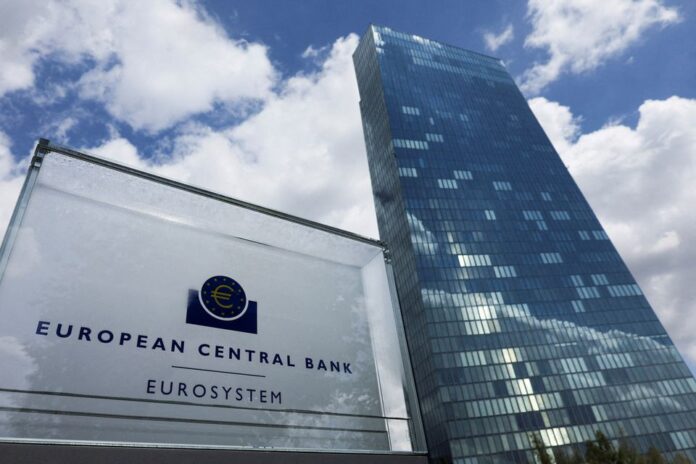The European Central Bank kept interest rates unchanged as expected at a record high on Thursday and reaffirmed its commitment to fighting inflation, giving not a hint that policymakers are starting to contemplate policy easing, according to Reuters.
The ECB ended its fastest-ever rate-hiking cycle in September but has been adamant that even discussing a reversal would be premature since price pressures have yet to be fully extinguished and many wage negotiations have yet to conclude.
Investors, however, are betting that the ECB is getting it wrong on both growth and inflation and will be forced to make an about-face, delivering five rate cuts in rapid succession from early in spring.
But the ECB did not signal such a pivot on Thursday and made only nuanced changes in its statement, repeating its longstanding guidance that holding interest rates at the current level for sufficiently long will bring inflation back to target.
“The Governing Council considers that the key ECB interest rates are at levels that, maintained for a sufficiently long duration, will make a substantial contribution to this goal,” the ECB said.
“The Governing Council’s future decisions will ensure that its policy rates will be set at sufficiently restrictive levels for as long as necessary,” the ECB said in a statement.
The bank said that inflation trends “broadly” confirmed its previous assessment but it removed a reference in previous statements to elevated domestic price pressures and strong labour cost growth.
The bank also said it would continue to follow a data-dependent approach, meaning it was not committing to any particular policy path and reserved the right to adjust interest rates as needed.
“The Governing Council’s interest rate decisions will be based on its assessment of the inflation outlook in light of the incoming economic and financial data, the dynamics of underlying inflation and the strength of monetary policy transmission,” the ECB added.
The ECB’s pushback has had some impact on financial markets but investors still see 125 basis points of rate cuts this year, or five moves, with the first in April or June.
The big discrepancy in expectations largely stems from a different outlook on growth and just how much past rate hikes are slowing activity across the 20 economies that use the euro currency.
The ECB expects household and government spending to drive a recovery but data appear to be painting a bleaker picture, with manufacturing remaining in recession and services cooling.
The euro zone was probably in recession last quarter and got off to a slow start in January, making the current quarter the sixth in a row with broadly flat or negative growth. A long-predicted recovery meanwhile keeps getting pushed further out.
A weak economy, along with muted commodity prices and high interest rates, will keep stifling inflation, which stood at 2.9% in December and is not currently expected by the ECB to fall back to its 2% target until 2025.
Many disagree with that projection.
Some think that the ECB’s insistence that even more evidence of disinflation is needed for it to act raises the chance of a policy error.


